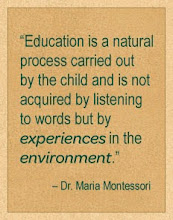You have a gifted child, so..are you gifted? Read the following to see if it rings true for you.
An excerpt from Giftedness in the Workplace by Dr. Mary-Elaine Jacobsen
In general, the gifted exhibit sensory and emotional sensitivity, difficulty in accepting criticism, extraordinary empathy and compassion, passionate dedication to causes, deep concern and worry, overwhelming feelings of responsibility for the well-being of others and the advancement of humanity, and become easily outraged by injustices and inhumane acts.
Not unexpectedly, gifted adults are prone to periods of existential depression. On the other hand, one of the more glaring traits of giftedness is extraordinary goal orientation that coexists with a relentless curiosity.
Challenge seems to be more of a need than a want, and feelings of being driven or pressured to understand and excel are the companions of achievement. Entelechy (from the Greek entelekheia meaning full realization, a vital force urging one toward self-actualization) is the sum and substance of their remarkable self-motivation and perseverance.
We can see evidence of adult giftedness in a broad knowledge base that is woven together over time and easily linked to new information. They also display a habit of self-monitoring and self-guidance, personal insight and metacognition --- often in the form of harsh self-scrutiny.
Gifted adults generally rely on their pliable thinking and unusual perceptivity. They share an ability to see through the veneer, to quickly ascertain problems (adept problem-finders) and reinterpret things beyond traditional views.
They can cut through complex issues to the heart of the matter and move directly toward creative solutions by combining intellectual strengths (e.g. verbalizing internal images).
The astute observer will detect signs of adult giftedness in their love of puzzles and preference for complexity, their penchant for original responses, and fondness of novelty. These characteristics become all the more obvious when they stay the course and tolerate ambiguity long after others have bowed out of the investigation.
The gifted adult often displays a tendency to be excitable, especially when something new tweaks challenges their imaginations. They may appear to have unusually high levels of energy (not hyperactivity), shifting from one area of interest to another without loss of zeal.
Sometimes excitability is evidenced by overt expressiveness, love of intense discussion and debate, the ability to concentrate for long periods of time, multiple interests that reflect their multipotentiality, and by complaints of being easily bored.
Frequently gifted adults in counseling report a history indicative of uneven or asynchronous intellectual, emotional, psychomotor, language, and/or social development (e.g. reasoning ahead of language skills; complex ideas ahead of ability to sufficiently express; emotional maturity lagging reasoning).
They may be proud of their exceptional intelligence and high academic achievement or self-conscious and baffled about experiences of underachievement despite their recognized exceptional ability.
When gifted adults feel free to reveal information about their inner lives they often admit to being perfectionists and complain that they have find mundane tasks intolerable.
Many report feeling driven by, and often suffering from, exceedingly high standards for themselves and others; pulled toward high achievement by their profound idealism while simultaneously engaging in devitalizing self-criticism.
Particularly for the gifted female, it is not uncommon to find a self-perception distorted by accompanying feelings of being a failure, a fraud or impostor, or a belief that it is others who are truly gifted.
Contrary to popular opinion and faulty expectations of nerdism, the gifted adult commonly shows unusual psychosocial maturity, popularity, charisma, trustworthiness, social adjustment and relationship competence.
For many of them, leadership is a natural role that is upheld by self-assuredness and an excellent sense of humor.
Despite their abilities, the gifted experience recurring feelings of isolation and being largely misunderstood. Most have been aware since early childhood that they are inherently different, though they may not know in what ways, and typically believe their differences are disreputable.
Likewise they may eventually admit to chronic experiences of deep loneliness in spite of a preference for working alone. In addition, many have been berated for being picky, perfectionistic, or overly-committed to orderliness because neither therapist nor client realize it is normal for the gifted to seek security by systematizing.
Gifted adults may fail to respect their own need for solitude, reflection, and time to daydream or play with concepts and ideas. They may shame themselves when their strong bids for autonomy result in a pattern of butting heads with authority figures when most have never been told that they challenge tradition because of their deep personal values and a reverence for truth and authenticity.
Overall, the gifted adult is almost entirely unaware that the so-called excesses of their nature are the very same traits that underpin excellence. With help, as gifted adults discover their true identities, they can rewrite their histories in terms of assets rather than liabilities.
They may come to understand a gifted child’s tears and rage over playground unfairness or pointing out politically incorrect truths were early signs of moral leadership.
They may finally realize that badgering teachers and parents with questions and getting into all kinds of investigative mischief often foreshadows entrepreneurism and innovation.
They may also discover that when the gifted child’s touchiness seems excessive, it may be a harbinger of profound empathy, the kind revered in social reformers and servants of the poor and needy.
Thus, a corrected personal history is fundamental for self-support, a prerequisite for confidently embarking on new ventures in a world that is still stuck on stereotyped notions about the gifted.






